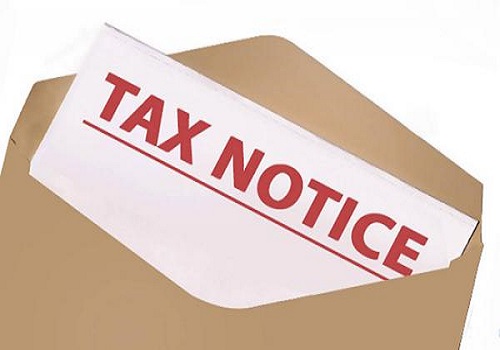Section 143 deals with assessment procedures under Income tax act and section 143(2) gives power to assessing officer to assess the Income tax return of the assessee. Relevant extract of the sub section are as under:
“(2) Where a return has been furnished under section 139, or in response to a notice under sub-section (1) of section 142, the Assessing Officer or the prescribed income-tax authority, as the case may be, if, considers it necessary or expedient to ensure that the assessee has not understated the income or has not computed excessive loss or has not under-paid the tax in any manner, shall serve on the assessee a notice requiring him, on a date to be specified therein, either to attend the office of the Assessing Officer or to produce, or cause to be produced before the Assessing Officer any evidence on which the assessee may rely in support of the return:
Provided that no notice under this sub-section shall be served on the assessee after the expiry of six months from the end of the financial year in which the return is furnished.“
As we can see in the above proviso that no notice could be served in the above section after expiry of six months from the end of financial year in which return of income is filed. Also, notice issued u/s 143(2) is the most important notice for conducting assessment and if the same is invalid or not issued then entire assessment proceedings can be quashed or considered void ab initio.
Now the question which comes to mind is whether this six month is to be seen from the end of financial year in which original return of income is filed or from the date of filing of revised return?
In a normal scenario the due date of filing the revised return is in the same financial year in which original return is filed but it was not the same always, as before Finance Act, 2017 assessee could file revised return upto 1 year from the end of relevant assessment year.
Similar situation has appeared now where CBDT has extended the due date for filing revised return for AY 2020-21 upto 31.05.2021 which would normally end on 31.03.2021. Hence, the question is more important now as the financial year of filing original return and revised return would be different.
There are two views on this situation:
View No. 1 Revised return substitutes original return and hence due date for assessments needs to be seen according to original return.
People supporting view no. 1 considers that revised return filed by an assessee substitutes original return from the date when original return was filed and accordingly the due date for assessment is to be seen from original return.
Reliance is being placed on landmark judgement of Allahbad High court in case Dhampur Sugar Mills 1973 (90 ITR 236 All) wherein it has been held that:
“It will still retain the character of an original return, but once a revised return is filed, the original return must be taken to have been withdrawn and to have been substituted by a fresh return for the purpose of assessment.”
Hence, many people believe that after the above judgement it can be said that when a revised return is filed it substitutes original return and hence it can be said that such return was filed from the date of filing of original return and revised return gets into the shoes of original return.
Thus, limitation for issuance of notice of assessment needs to be seen from the date of original return.
View No. 2 Revised return is a separate return and limitation period for assessment notice needs to be seen from revised return date:
As per the second view although revised return substitutes original return and takes the character of original return but the same is a different return and cannot be assumed to have been filed the date when original return is filed.
There are various arguments behind this thought some of which are as under:
1. Let’s have a look at this practically before Finance Act, 2017 wherein revised return could be filed till 1 year from the end of relevant assessment year. For eg: For AY 2015-16 original return was filed on 31.07.2015 and no assessment was done on original return.
Now if assessee feels there is mistake in original return he can file revised return upto 31.03.2017 and hence he decides to file revised return on 31.12.2016. If we accept the first view then practically Assessing officer cannot open the assessment against such revised return as the same was filed after the end of six month from the end of financial year in which original return was filed i.e. after 30.09.2016.
Thus practically it can be said that first view does not hold good and hence in case of assessment date of revised return needs to be seen.
2. There have been various case laws where High courts have passed judgement about assessment notice in case of defective return. One such judgement is by Hon’ble Gujarat High court in case of Kunal Structure (India) Private Limited Vs DCIT Special Civil Application No. 13924 of 2018 Dt. 24.10.2019 wherein it was held that:
“If one looks at the language employed in subsections (1), (3) and (5) of section 139 of the Act, a common thread in all the subsections is that the assessee is required to file a return of income under those subsections. However, from the language employed in subsection (9) of section 139 of the Act, the same does not require any return to be filed by the assessee. All that the section says is that the assessee is required to be given an opportunity to rectify the defect in the return filed by him within the time provided; failing which such return would be treated as an invalid return.
Unlike subsection (5) of section 139 of the Act which requires an assessee to file a revised return of income in case of any omission or wrong statement in the return of income filed under subsection (1) thereof, subsection (9) of section 139 of the Act, does not require an assessee to file a fresh return of income, but requires the assessee to remove the defects in the original return of income filed by him within the time provided therein. Once the defects in the original return of income are removed, such return would be processed further under the Act. In case such defects are not removed within the time allowed, such return of income would be treated as an invalid return.”
Thus, from the above order inference could be drawn that once a revised return is filed a new return comes into picture and section 143(2) speaks about return of income filed u/s 139 and not section 139(1) only and hence it can be further concluded that if a revised return is filed the limitation period needs to be seen from the date of filing revised return unlike in case of defective return where the same is only processed after the defects are rectified..
Further by filing a revised return of income, assessee could even change the entire ITR form filed and nature of income disclosed and hence it substitutes the original return from the date when original return was filed but same cannot be considered as to be filed from that date for assessment purpose.
Disclaimer: The opinions presented above are the personal opinion of the author and has no legal binding.
If you need any assistance with your assessment proceedings under Income tax act you can book consultation with our experts. To book consultation CLICK HERE.
To book filing of revised return CLICK HERE.
Guidance on above article by:

CA Naman Maloo (C.A., B.Com.)
He is currently working as Partner – Direct Tax with Jain Shrimal & Co. in Jaipur having experience in dealing Assessments, Tax Audit, Tax planning for NRI, Business planning and consultation.
E-mail: naman.maloo@jainshrimal.in
LinkedIn profile: https://in.linkedin.com/in/naman-maloo-868245146













